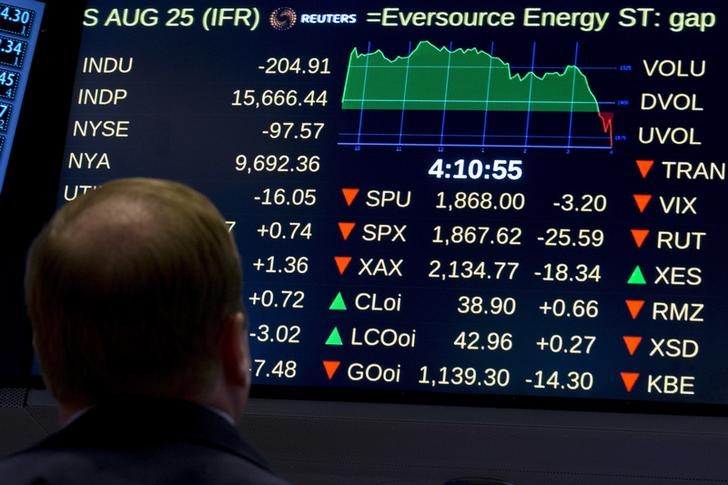(Bloomberg) -- Fear is still rife across volatility markets even as greed powers U.S. stocks anew after their best quarter since 1998, in a historic divergence making life harder for Wall Street speculators.
While the S&P 500 Index has rallied a whopping 40% from the March trough, a measure of implied equity swings known as the Cboe Volatility Index remains elevated at around double its February low.
Systematic traders who make a living by wagering on price gyrations ahead are in a bind. On the one hand, a flat but elevated VIX futures curve is flashing risks on the pandemic-driven economic trajectory, the November election and liquidity threats. On the other, S&P bulls tanked on policy stimulus see good reason to defy caution in the VIX landscape.
All that means volatility players are lacking the conviction to go all-in one way or the other, as stocks and the VIX send diverging signals on risk.
“Equity and equity volatility markets are pointing in very different directions,” Societe Generale (OTC:SCGLY) SA strategists wrote in a note. “This dichotomy represents a serious issue for volatility market participants.”
Chief among the latter are the multi-billion-dollar funds that short equity swings by selling options for income in a yield-starved world. Ordinarily these players would pounce at current levels in a bet that volatility markets will catch up with rallying stocks.
And they would have long-term history on the side. Typically when stocks rise, the VIX falls as traders look forward to less turbulence ahead, and vice versa. Yet the likes of Goldman Sachs Group Inc (NYSE:GS). consider the gap between the gauge and S&P 500 returns one of the largest on record, thanks in part to the dizzying speed of the cash-equity rally.
While stocks have unleashed a recovery rally for the history books, the jitters never really went away. Hedges like gold and bond duration remain well bid amid fears over fresh outbreaks of the virus, the possible end of fiscal aid and the limits of monetary stimulus.
In the current landscape it’s “tough to find strong conviction on buying or selling equity vol either way,” said Colton Loder, managing principal of Cohalo, an alternative investment manager based in Washington.
Loder reckons the VIX can fall modestly given the still-low equity positioning and the technical consequences spurred by the delisting of TVIX, the world’s biggest volatility exchange-trade product. But he sees market risks as finely balanced.
Who dares wins and the sell-side is touting plenty of trades across derivative markets, both long and short. SocGen recommends buying out-of-the-money EuroStoxx 50 calls, whose prices are depressed given significant selling pressure from overwriters in the options market. The French banks also suggest selling deep out-of-the-money weekly S&P 500 puts which deliver a high premium by historic standards.
But as fresh virus waves spur continued lockdowns, many traders are in no mood to harvest the volatility-risk premium, or the tendency for implied swings to overshoot realized levels.
Tobias Hekster at hedge fund True Partner points to the expiration of additional unemployment benefits in the U.S. as a possible flash point in coming months.
“We would not be surprised if we get a memorable summer in the markets,” said the co-chief investment officer.
©2020 Bloomberg L.P.
